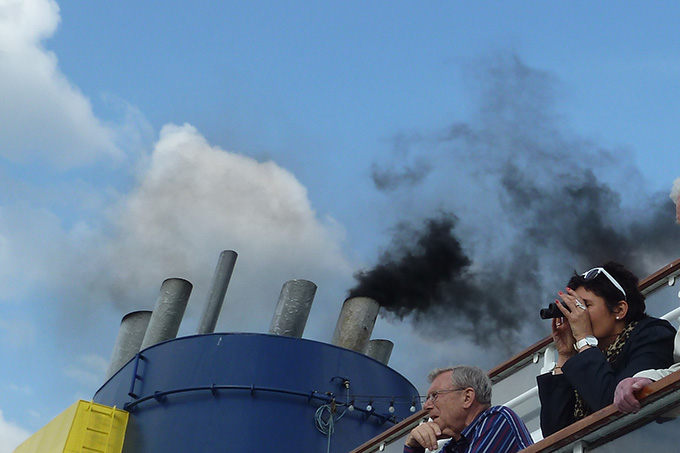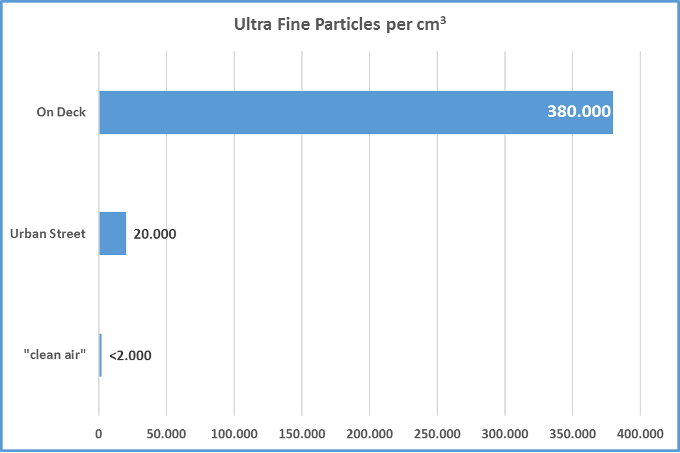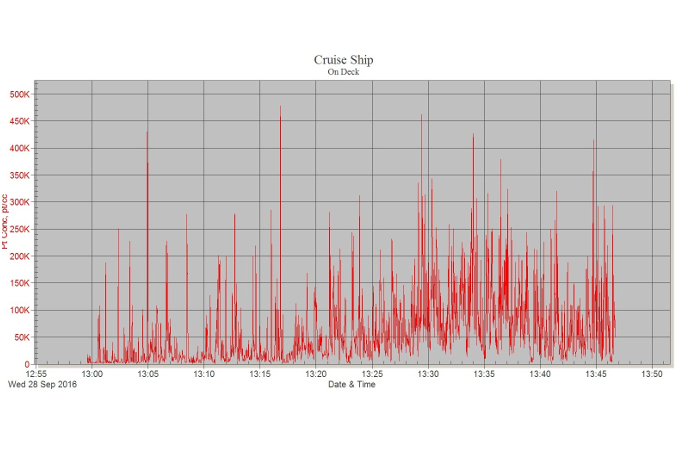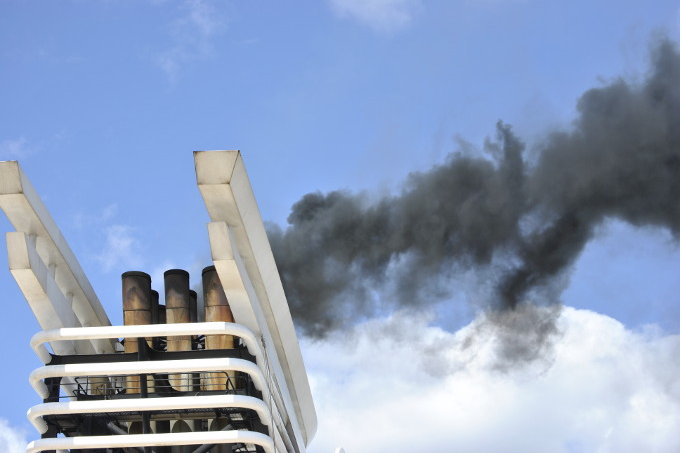Comparison pollution level on deck and in clean air
Extreme air pollution levels found on deck of cruise ship
Cruise ships’ exhaust gases harm human health

Cruise ship - Photo: Diethard Schulz
NABU finds its criticism confirmed that cruise ships’ exhaust gases not only severely damage the environment but also harm human health. Undercover air tests on the passenger deck of a European cruise ship now unveiled high loads of health damaging ultra-fine particles in the ambient air. A journalist documented concentrations up to 200 fold above natural background levels. The measurements were carried out but a French TV team working for the famous TV show “Thalassa” which was broadcasted last Friday, January 20th on France 3. In recent months NABU had already conducted a series of air pollution measurements in several port cities and next to cruise ship terminals in Venice, Hamburg, Marseille and Barcelona.
NABU’s CEO Leif Miller said: „Ship owners expose their passengers to high loads of health damaging pollutants. Actually nobody can call this a fresh sea breeze any longer facing 200 fold higher particle concentrations on deck of a cruise ship. Despite these shocking data major parts of the cruise industry are refusing to switch to cleaner fuels and to install exhaust gas cleaning systems like they are a common standard for all land-based sources since years. Such measures could reduce the massive pollution from cruise ships immediately and therefore limit the impact for humans, the environment and climate significantly. We interpret this behavior and ignorance as irresponsible profiteering.”
The environmentalists also referred to the German Lungs Association which recommended several times that people who are already suffering from respiratory diseases such as asthma or COPD to stay away from certain parts of a cruise ship’s deck and not to inhale any exhaust gases as this may trigger acute irritations (exacerbations). Also the World Health Organisation (WHO) had lately categorised diesel exhaust as carcinogenic which equals the same risk level as Asbestos. Next to particulate matter and soot other health damaging substances are emitted when burning heavy fuel oil or marine diesel such as nitrogen dioxide or heavy metals.
NABU’s transport policy officer Daniel Rieger said: „We were not surprised when we saw these new figures. It has been known for years that exhaust gases from ships contain high amounts of toxic air pollutants as these vessels sail on the dirtiest fuels available on the market and lack any filter systems. So far we have only been able to document the air pollution of ships on land, next to the cruise terminals for example, but neither we nor independend third-parties were allowed to do it on the ships in order to check the pollution there. This could be explained in a way that cruise operators may expect dramatic measurement results themselves. Here the question arises if the industry deliberately looks the other way.”
Apart from that one could assume that the measurement results are no isolated case but most likely represent reality on board most cruise ships of the current fleet. This should be regarded as evidence of incapacity und raised the question which further proofs the cruise industry is waiting for before its taking long-overdue action. Public announcements alone were by far not sufficient here as for example German market leader AIDA Cruises promise to retrofit its whole fleet with particulate filters back in 2014 but still there is no proof a single system installed.
More
From an environmental and health point of view none of the european cruise ships is recommendable at the moment. That is the result of the NABU cruise ship ranking 2016. more →



